Comparing Gas vs Electric Water Heaters
Are you considering whether to get a gas or electric water heater for your home? This article breaks down the key differences and provides benefits and drawbacks for both options. We also compare energy efficiency and upfront costs to help you make an informed decision that works best for your household. Let us help you find the perfect water heater for your needs.

How do electric water heaters work?
Enjoy on-demand hot water with your electric water heater! It works by heating water in the storage tank via submerged heating elements powered by your home's electrical system. The thermostat keeps a watchful eye on the temperature and turns off the heating elements when it reaches your desired level. This means you'll always have hot water at the ready. Understanding your electric water heater's operation will help you appreciate its technology even more.

Benefits of electric water heaters
Electric water heaters offer a host of advantages over traditional gas-powered heaters:
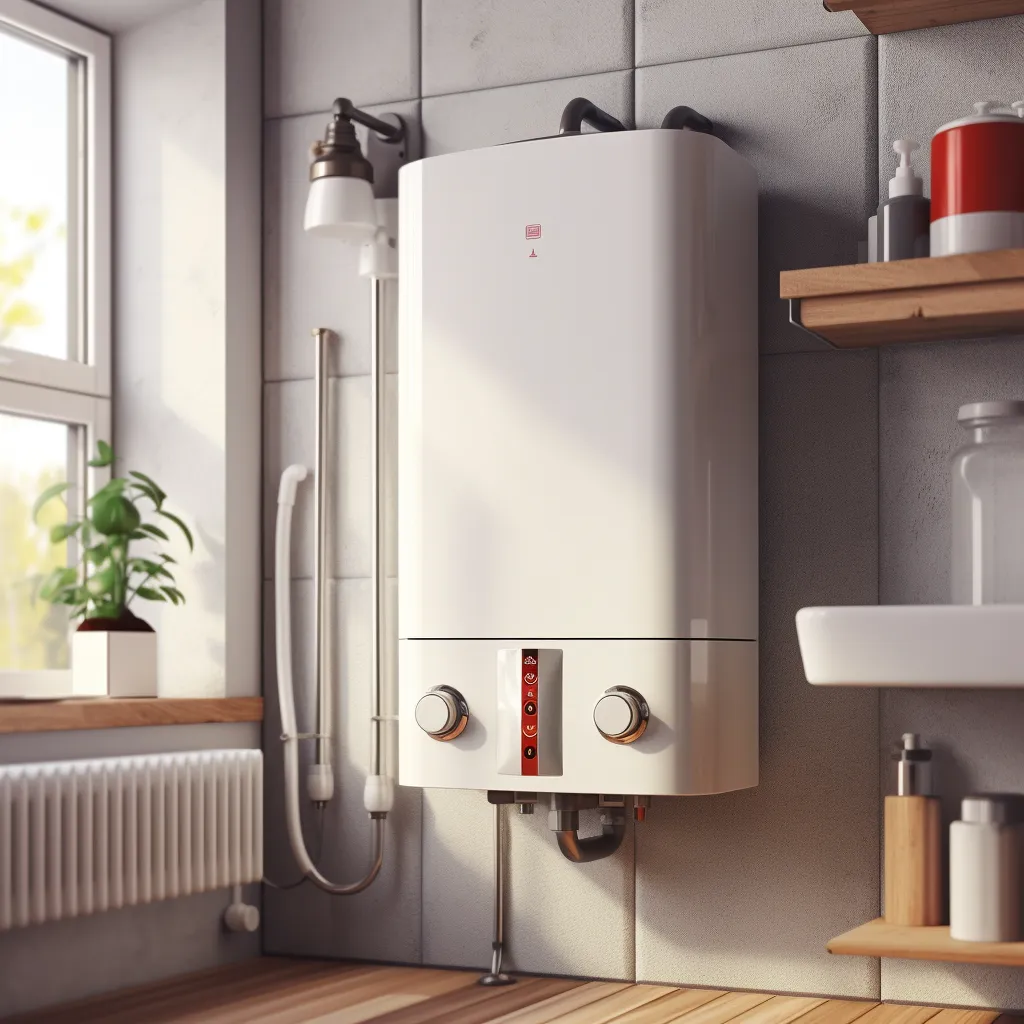
Get efficient hot water at an affordable cost with electric water heaters.
Say goodbye to the hassle of complicated installations and maintenance - these units are user-friendly and perfect for busy homeowners.
They don't require a flame, which means you'll save even more money on your utility bill.
Say hello to peace and quiet with electric water heaters, which produce less noise than their gas counterparts.
No matter the size of your home, electric water heaters offer the versatility to install hot water systems almost anywhere.
Disadvantages of electric water heaters
Despite their many advantages, electric water heaters also have some drawbacks that should be considered:
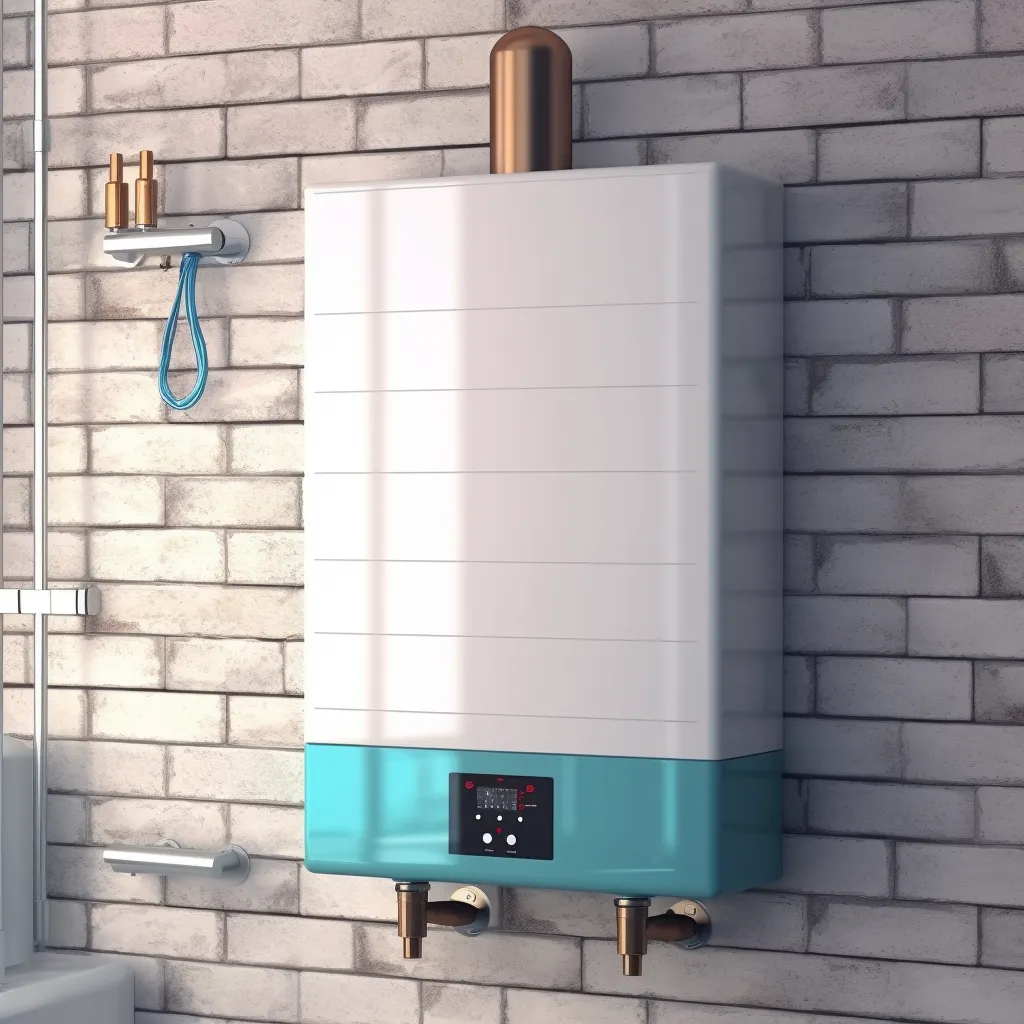
Heating water takes longer with electric models, meaning a wait before shower time.
While their energy bills may be less than gas heaters, there is an upfront cost to consider.
Their average lifespan is shorter, meaning you may need to replace them more frequently.
Keep in mind that electric heaters require electricity to work, so during power outages, you may have to cold shower.

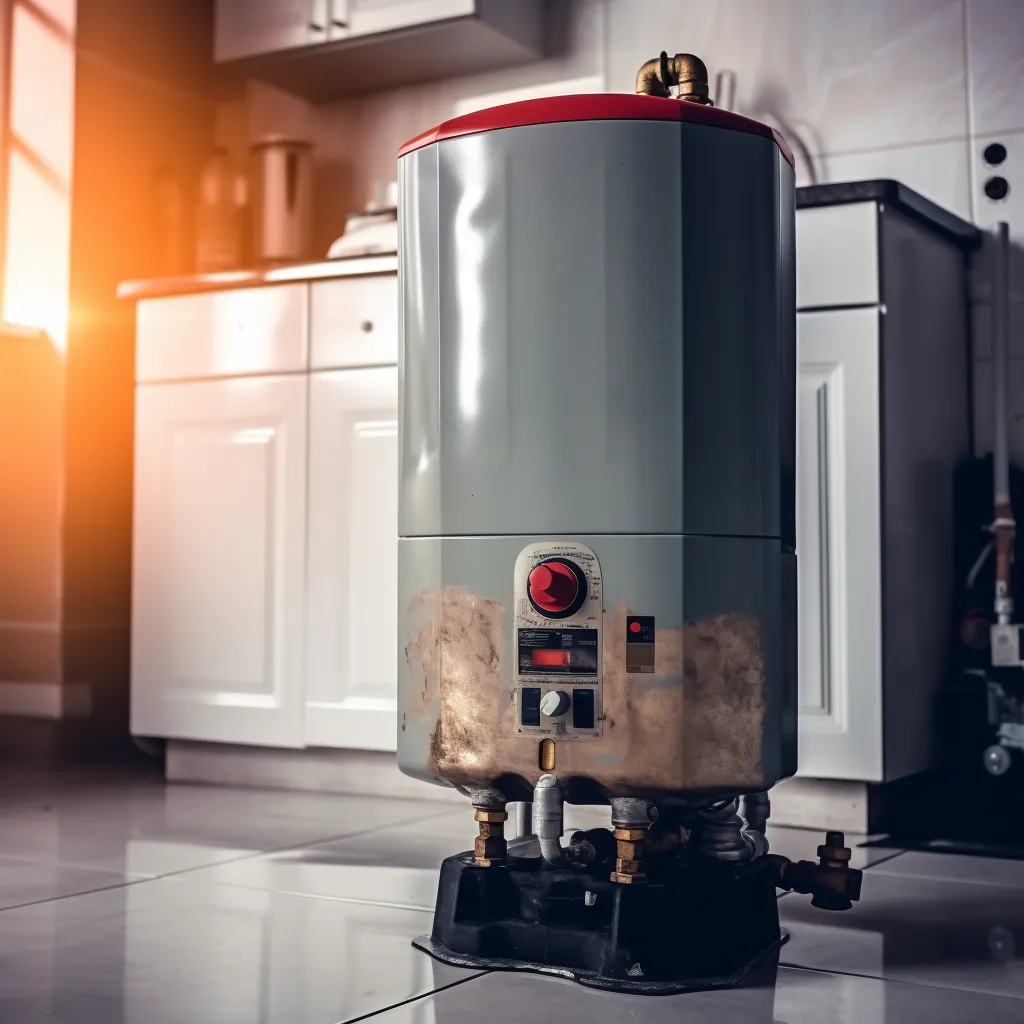
How do gas water heaters work?
Get a steady flow of hot water with gas water heaters. The process begins with the ignition of a gas burner at the base of a spacious tank. This heats the water, which flows through your tap when opened. Cold water inflow and rising hot water ensure continuous hot water supply.
Benefits of gas water heaters
Gas water heaters are a popular choice for many households due to their numerous benefits:
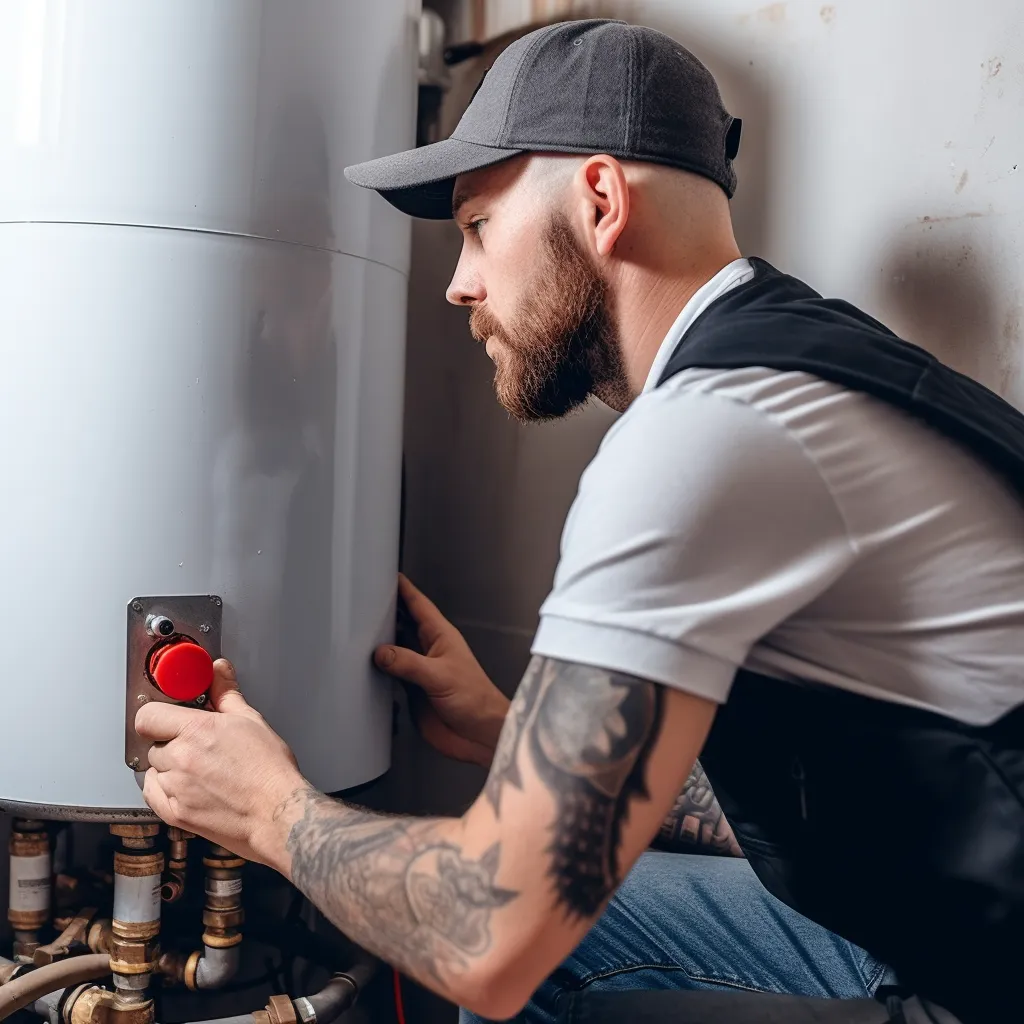
Save money on your utility bills with a cost-effective gas water heater that heats water faster than electric models.
You'll also enjoy a longer lifespan and less need for replacement.
Installation is a breeze and requires less specialized knowledge.
And the best part? Gas heaters are less expensive upfront, making them a smart choice all around.
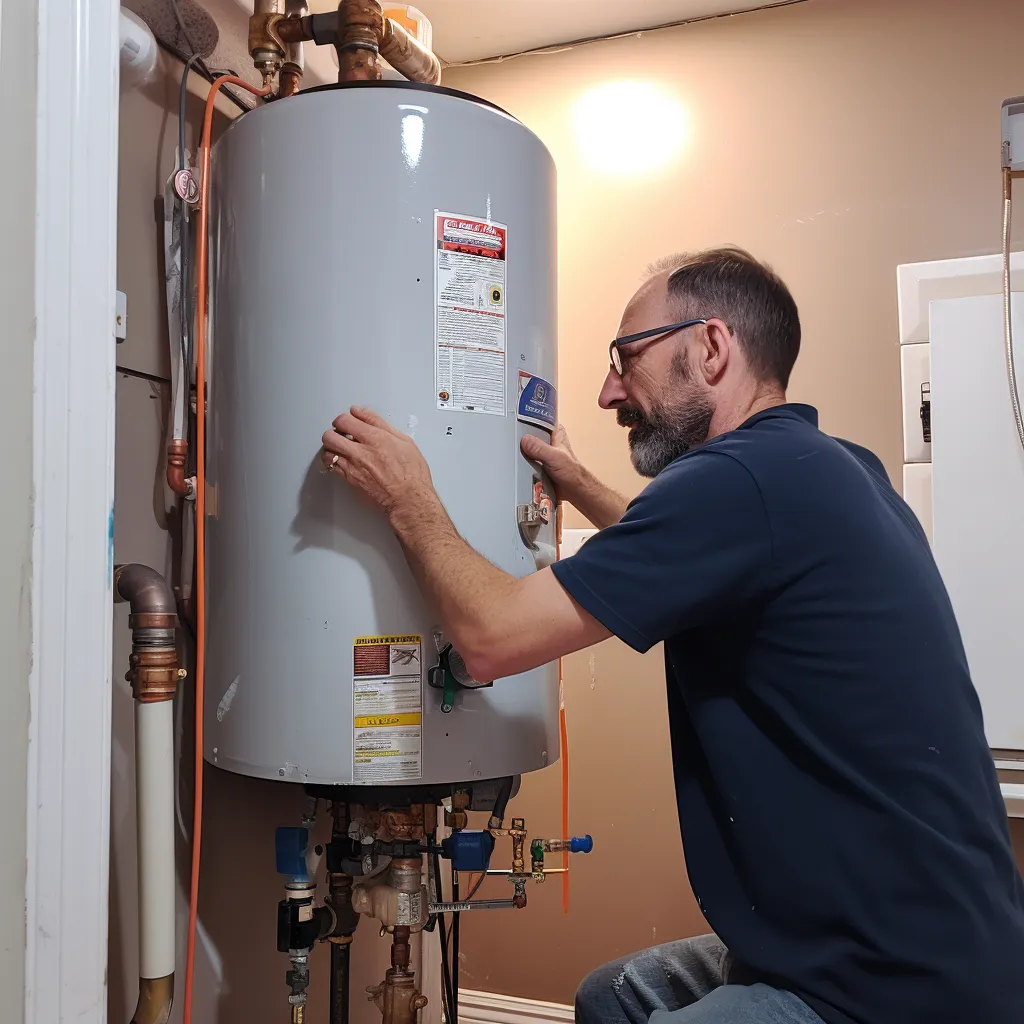
Drawbacks of gas water heaters?
Despite their many advantages, gas water heaters also have some potential downsides:
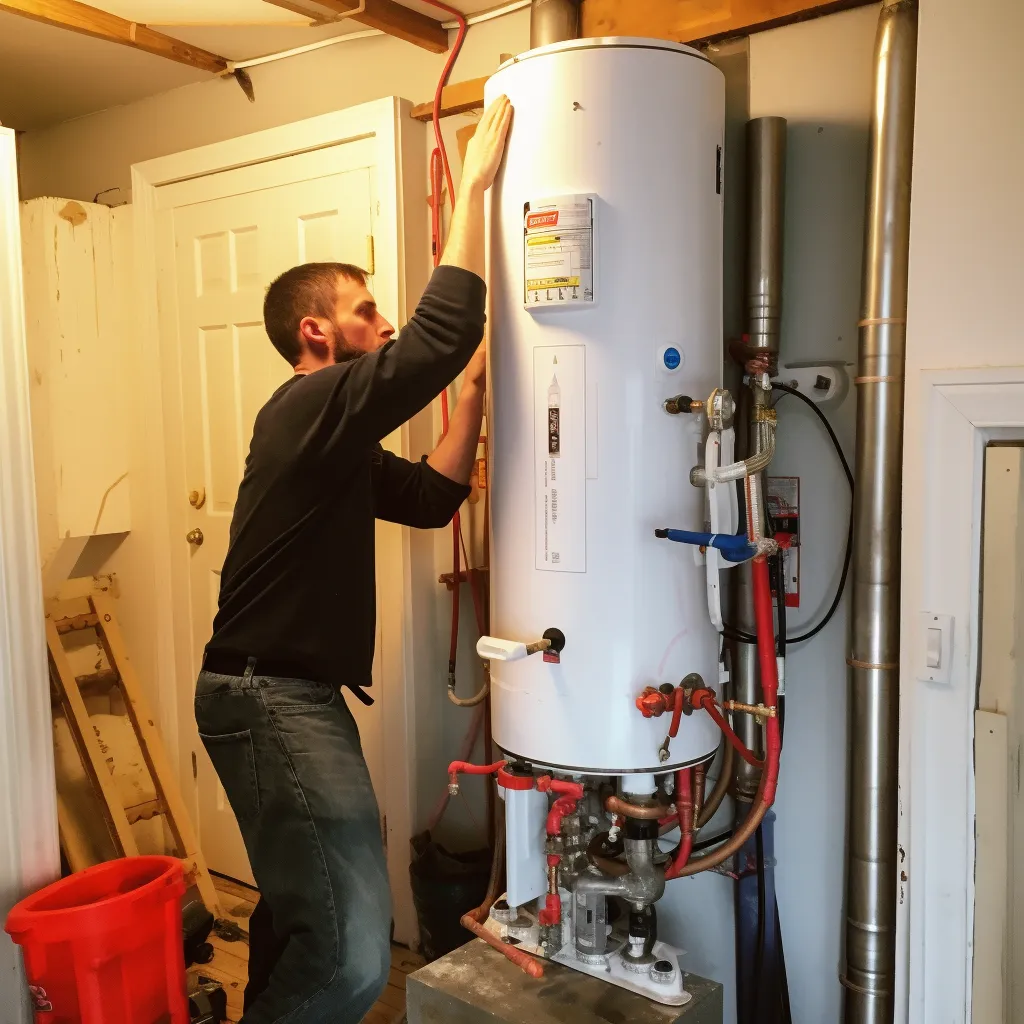
Pollution concerns: Unfortunately, burning natural gas releases pollutants into the air, which can contribute to air pollution. It's important to keep this in mind before making a decision.
Safety first: Improperly installed or used gas water heaters could result in very dangerous explosions. Follow all safety guidelines to ensure the well-being of yourself and your loved ones.
Maintenance costs: Compared to electric water heaters, gas units may require more maintenance, which can mean additional expenses. Consider hiring a professional to keep your unit in good working condition.
Installation time: Installing a gas water heater can take longer than an electric one. Make sure to allocate enough time for a satisfactory installation process.
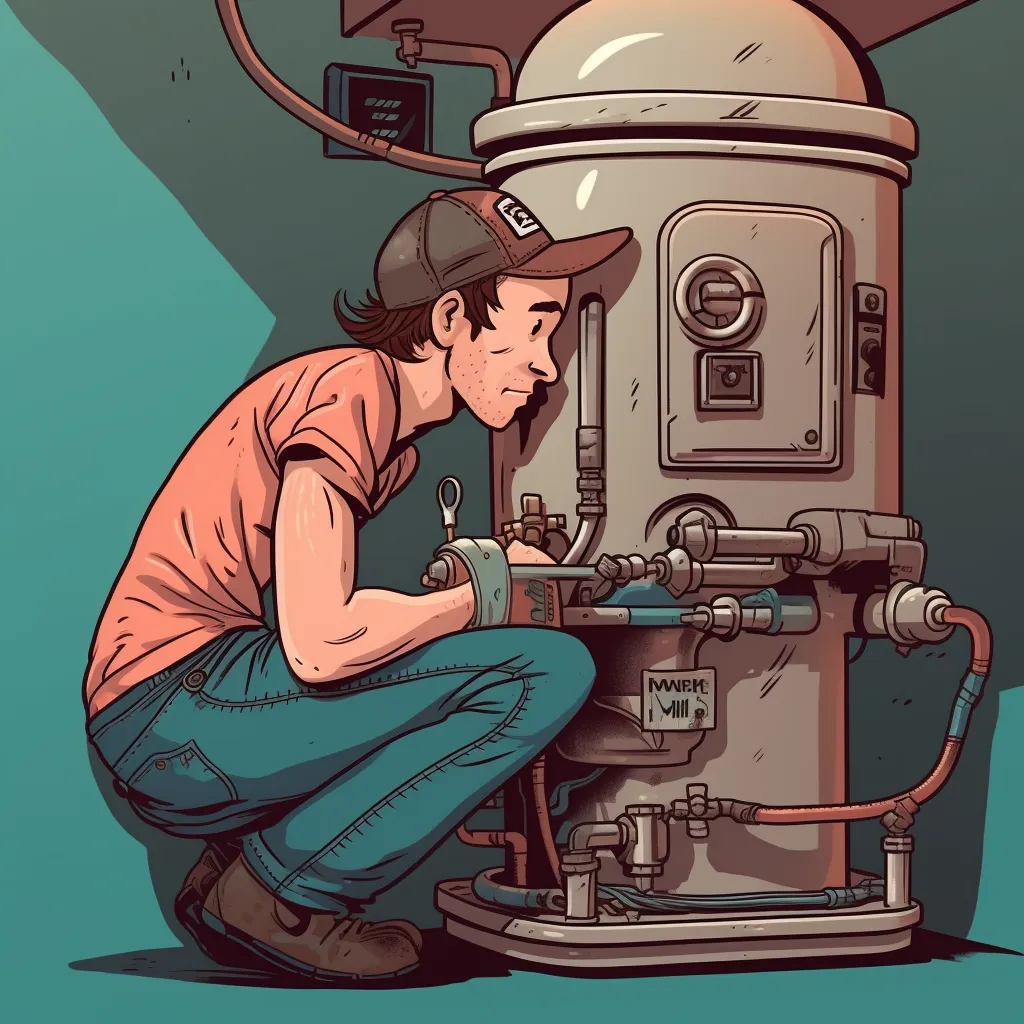
Are electric water heaters energy-efficient?
Want to optimize your electric water heater's efficiency? Learn all about the key factors that impact its performance, from size and insulation quality to operating temperature. Plus, discover the latest advancements that are helping electric models close the gap with their gas-powered counterparts.
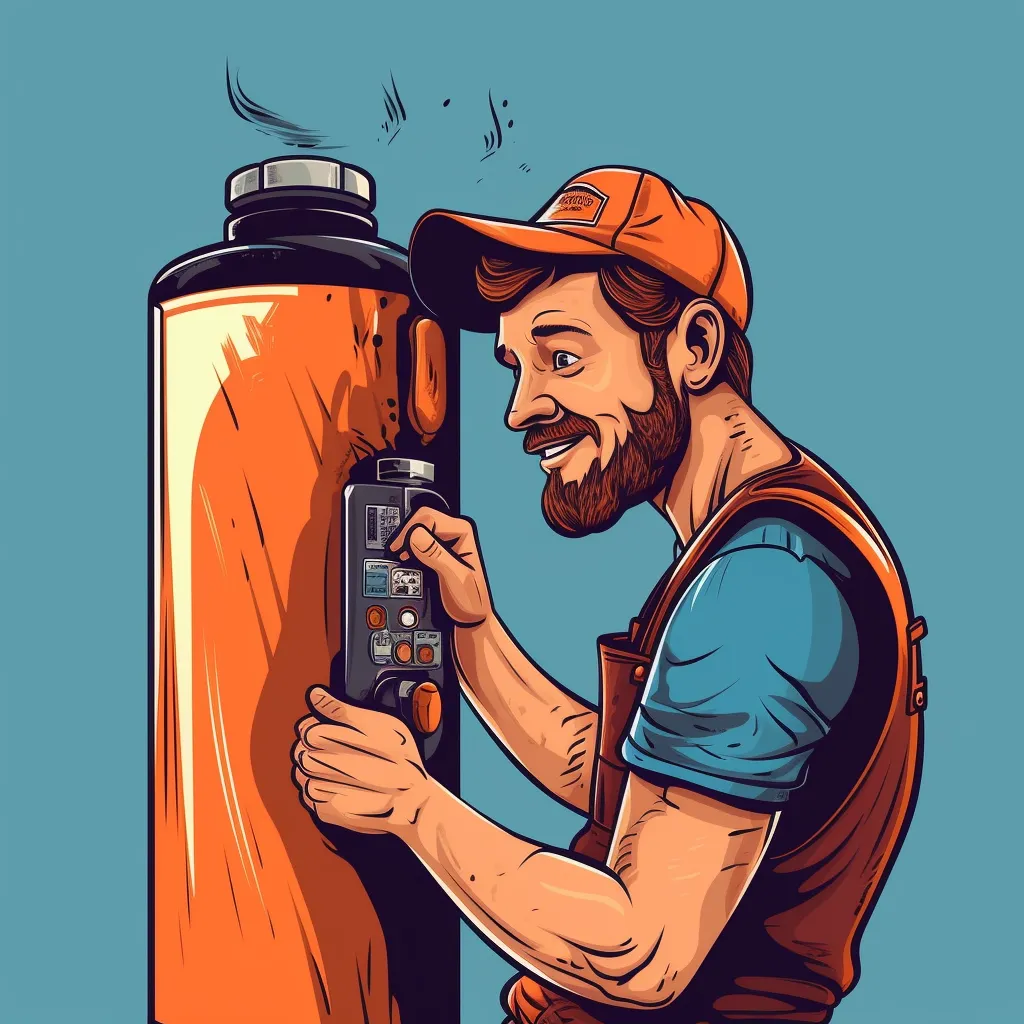
Are gas water heaters energy-efficient?
Say goodbye to high energy bills and hello to a more cost-effective water heating solution with gas-based water heaters. By utilizing natural gas to heat water, these heaters consume less energy than electric ones. But the benefits don't end there - maintenance tasks like flushing tanks and inspecting thermostats can maximize efficiency and save you even more money. Efficiency ratings vary by size and model, so find the one that's right for you and start enjoying the benefits today.
What does it cost to buy and install electric water heaters?
Looking for a cost-effective way to heat your water? Take a closer look at electric water heaters. With different sizes and features available, you can find one that fits your needs and budget. A 50-gallon model typically costs between $300 and $800, plus $300 to $500 for installation, depending on the complexity of the job. But don't forget to consider your plumbing and wiring before you buy. Despite the initial investment, an electric water heater pays off in the long run. Save money on your energy bills and enjoy dependable hot water all year long.

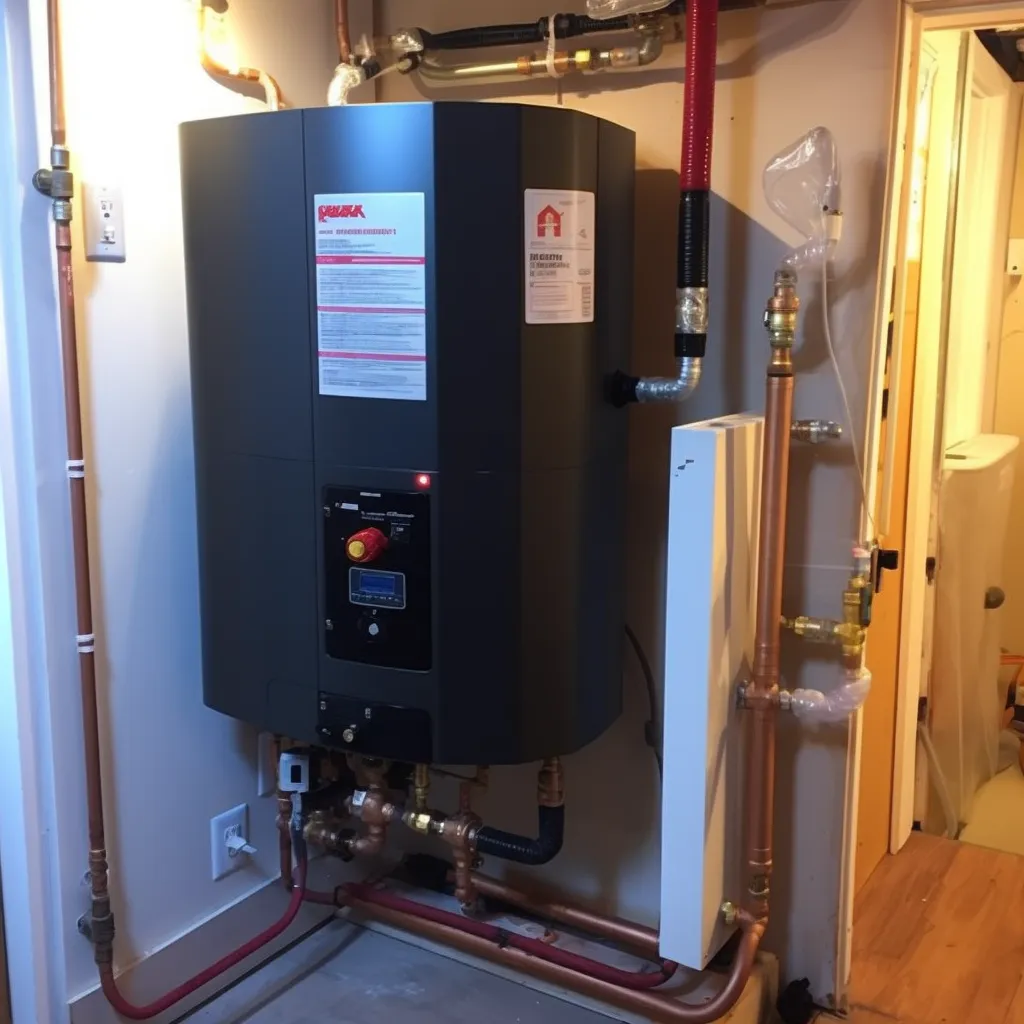
What does it cost to buy and install gas water heaters?
Experience consistent hot water with gas water heaters, available in sizes ranging from $500 to $3,000, including installation charges. Though costs may be steep upfront, gas water heaters grant significant long-term savings, delivering unmatched energy efficiency. Never run out of hot water with this dependable investment.
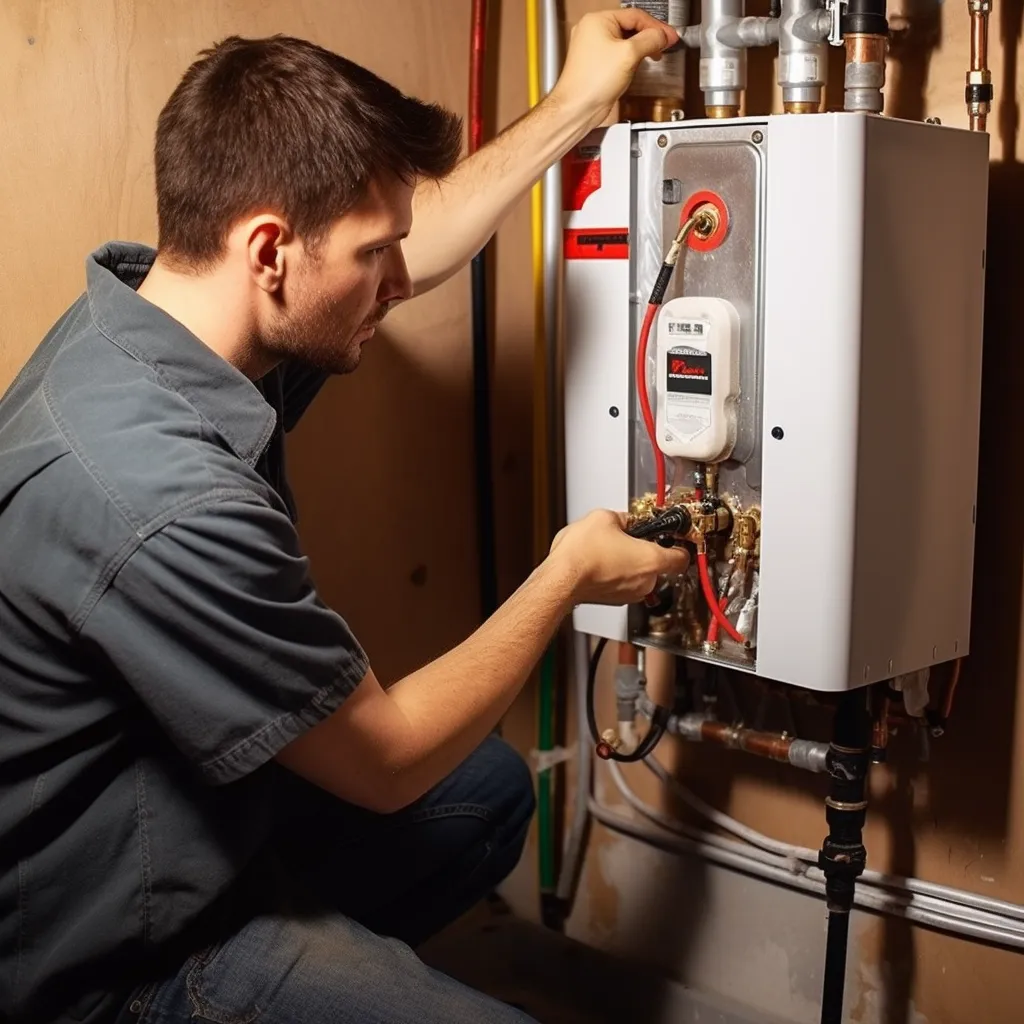
What are the maintenance requirements of electric water heaters?
Get reliable and convenient hot water with an electric water heater! But just like any other appliance, you need to maintain it properly for peak performance. For safe operation, make sure you periodically check the temperature and pressure relief valve to prevent explosions caused by overheating. Flushing the tank every six months to a year will also prevent sediment buildup and increase efficiency. Regular inspection of heating elements and timely replacement is crucial, too. Keep your electric water heater in top condition with these simple maintenance tips!
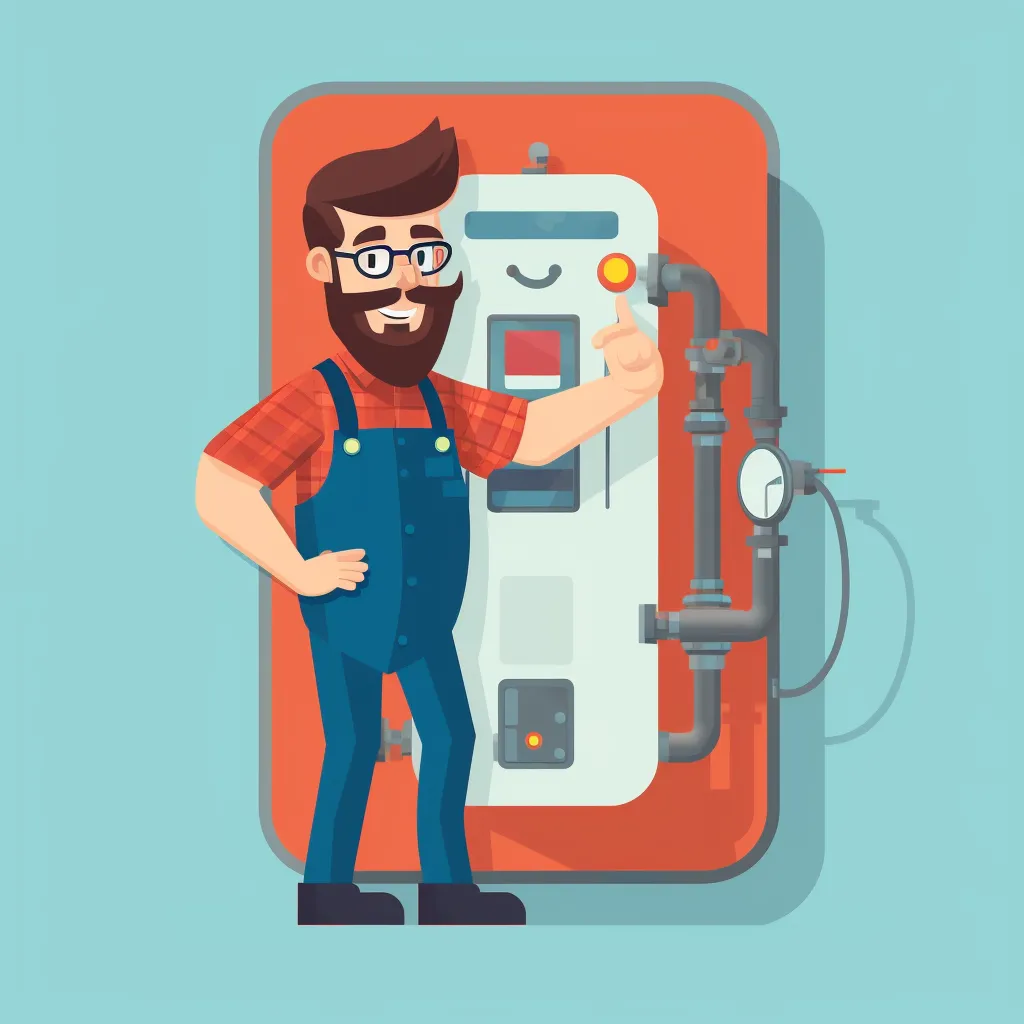
What are the maintenance requirements of gas water heaters?
Don't overlook the importance of regular maintenance for your gas water heater! Ensure that it's working both effectively and safely with a few simple steps. Start with an annual tank flushing to prevent sediment build-up, then regulate the anode rod every few years to prevent rust. Keep an eye on the burner and pilot assembly, conduct regular tests for the temperature and pressure relief valve, and always check for gas leaks. By taking these precautionary measures, your gas water heater will provide you with hot water for years to come.
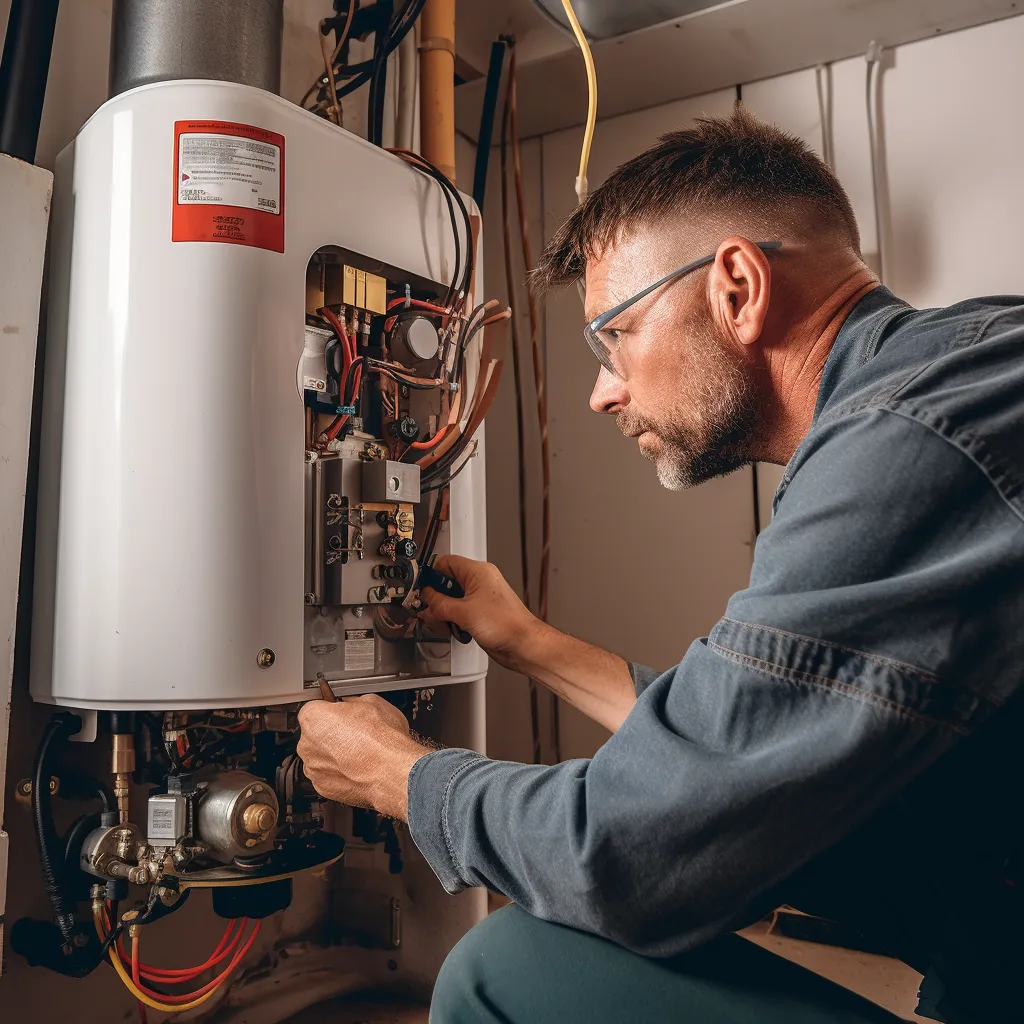
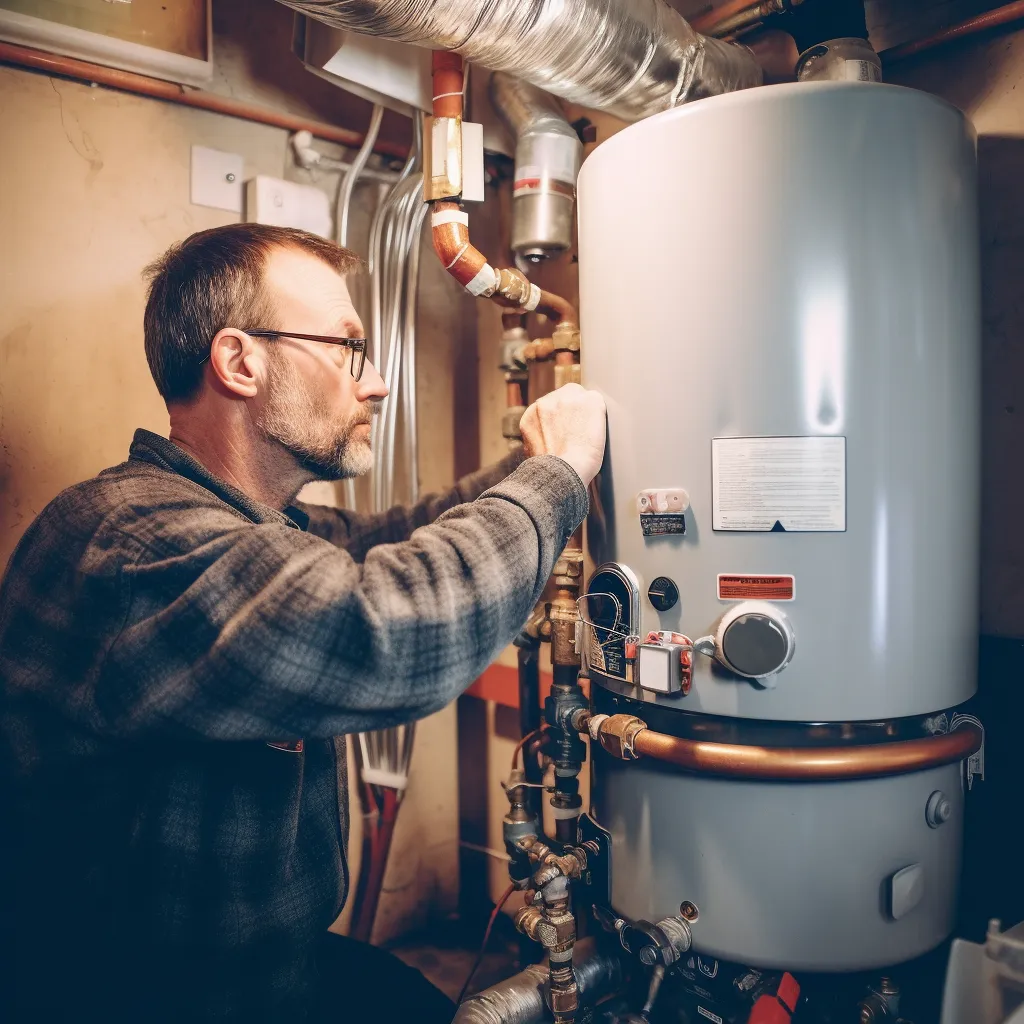
What are the safety considerations of electric water heaters?
Keep your home's electric water heater safe with these crucial tips. Electrocution is a major risk if the heater isn't grounded or malfunctions, while fire hazards can arise when it overheats or is placed near flammable materials. To steer clear of any unfortunate incidents, always follow the manufacturer's instructions and seek the help of a licensed professional to install the heater.
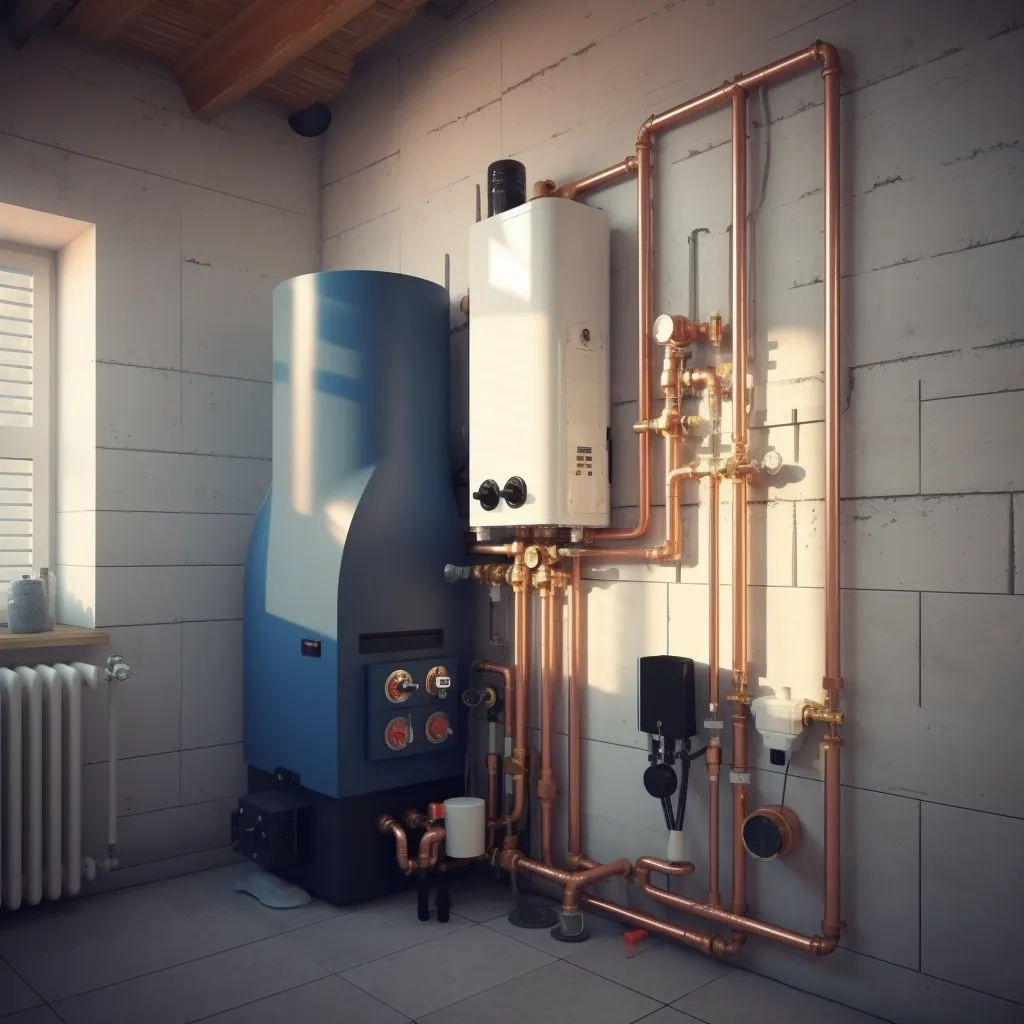
What are the safety considerations of gas water heaters?
Protect yourself from the dangers of gas water heaters by taking essential precautions. Ensure proper ventilation and detection of carbon monoxide with a reliable detector. Keep your heater well-maintained by scheduling regular checks to avoid leaks. Always keep flammable objects at a safe distance to prevent any accidents. Stay alert and take the necessary steps to ensure safety.
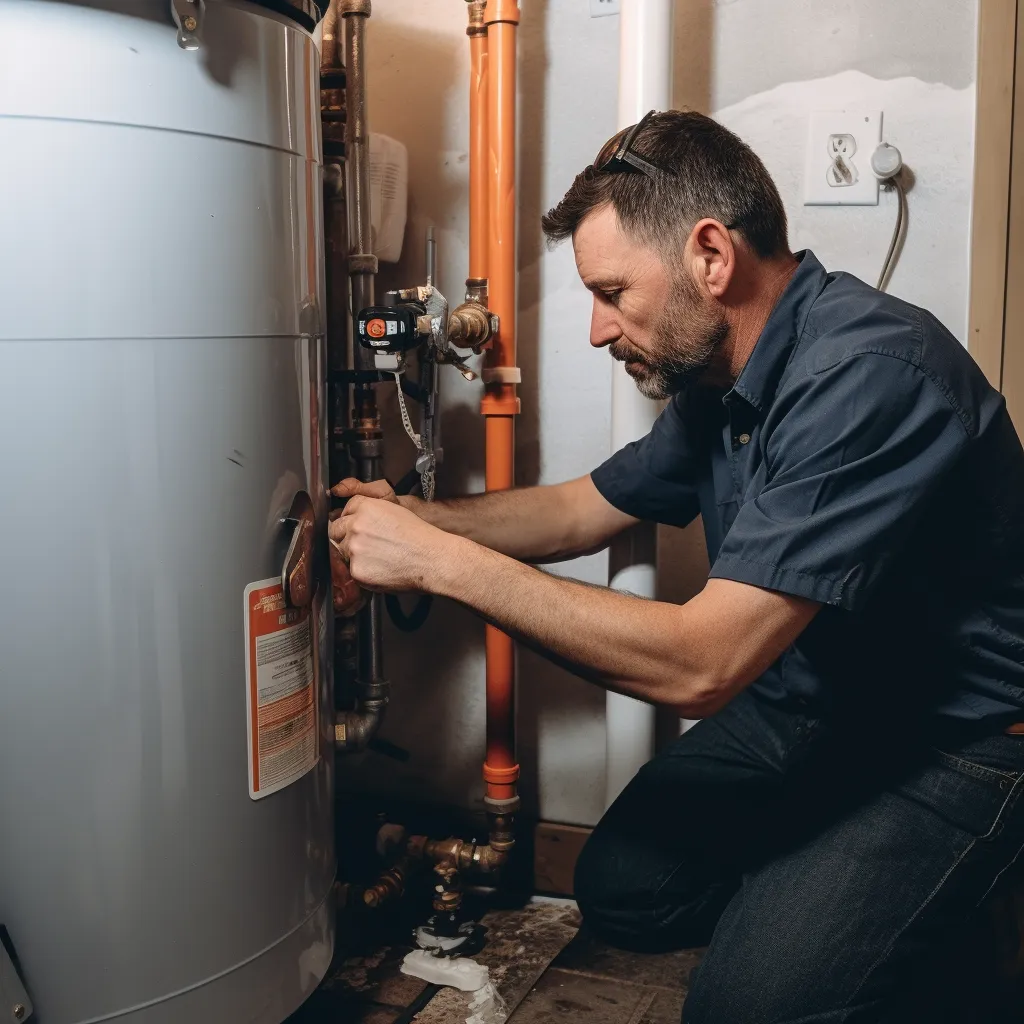
How to choose between electric vs gas water heater
Choosing a water heater can be overwhelming, especially when weighing options like electric or gas. To simplify the decision-making process, take these factors into consideration:
Electric water heaters are easier on your budget up front, but gas options can save you more cash in the long term.
What about efficiency? Gas heaters tend to come out ahead on that score, as well as on operating costs.
Then there's maintenance to consider. Electric water heaters are lower maintenance overall, but gas heaters require regular inspections to ensure safety.
Finally, if you're focused on reducing your environmental impact, take note: electric water heaters could be a greener choice depending on how they're powered.
The decision will come down to personal preference and what works best for your lifestyle and budget.
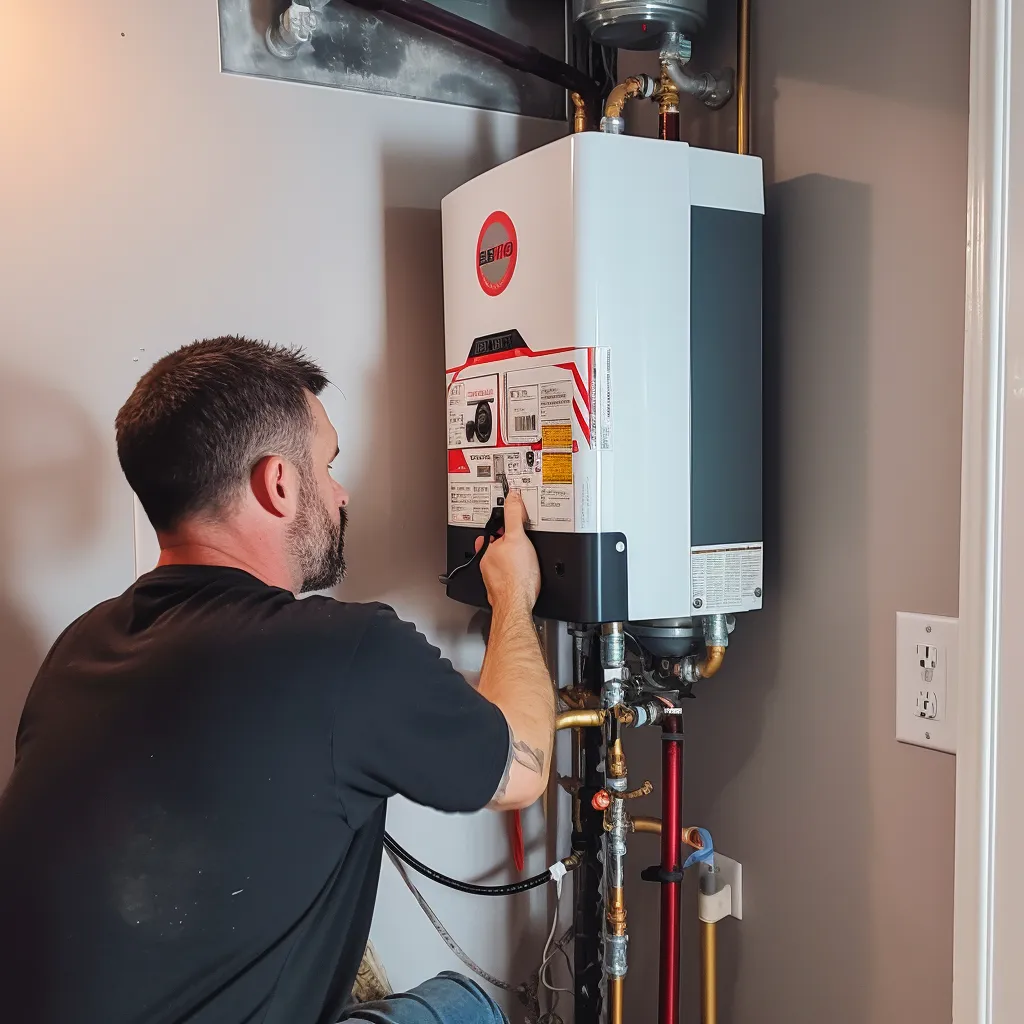
Why you should hire a licensed professional
to install your water heater
Thinking about installing or replacing a water heater on your own to save money? It may be a risky gamble. The truth is, handling such a critical installation can expose you to costly and dangerous hazards. It's always best to hire an experienced and licensed professional who can implement safety protocols and identify potential issues, so you can have peace of mind. Remember, your safety is paramount and should never be compromised. Entrusting this job to a licensed pro is the wise and safe choice.
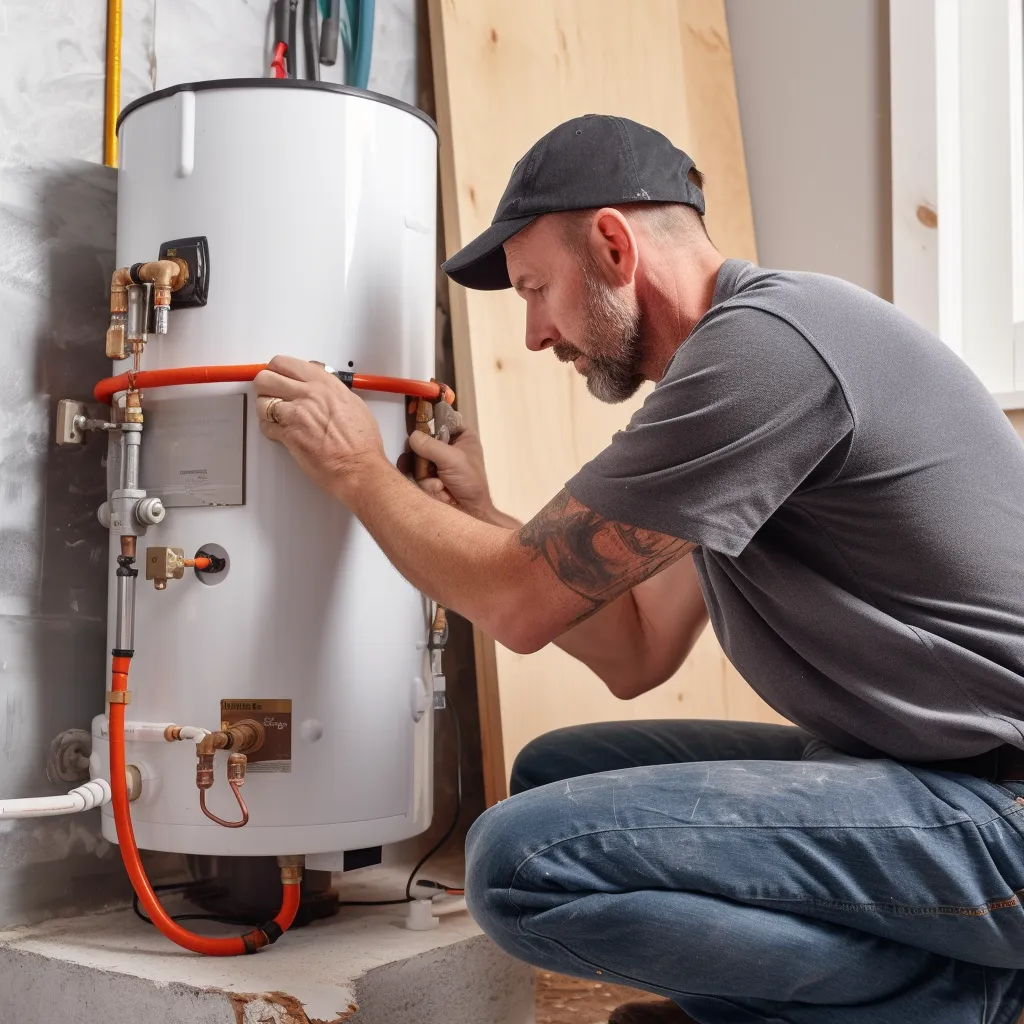
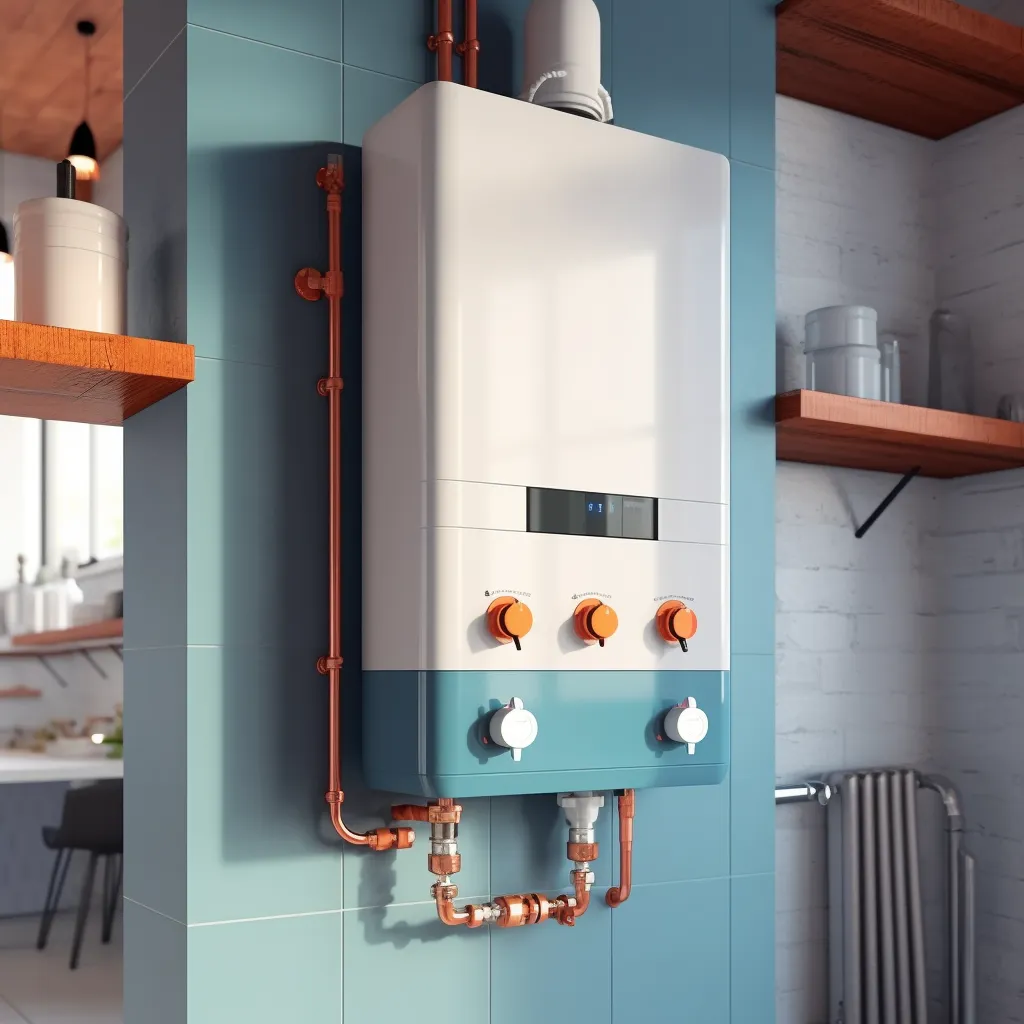
Be sure to do your research
Make an informed decision about the water heater that best suits your needs by conducting thorough research. Both electric and gas models have pros and cons, so choose wisely. Ensure safety and installation requirements are also taken into account. A smart, well-planned approach will help you find the ideal water heater. However, it is important to remember the significant role of a licensed professional when it comes to proper installation.
Ready to Solve Your Plumbing Needs?
For reliable, expert plumbing services tailored to the needs of Concord and its neighboring cities, look no further than EMR Plumbing and Heating. We’re here for you 24/7, ensuring that your plumbing is always in top condition.
Call us today to schedule your service!
Business Hours: Monday - Sunday, 24 Hours
Phone Number: (603) 634-8285
Location: Concord, N.H., serving all surrounding areas.
Trust your local experts at EMR Plumbing and Heating for professional, timely, and efficient plumbing solutions.
GET IN FULL TOUCH
PHONE: (603) 634-8285
EMAIL:
ryan@waterheaterconcord.com
EMR Plumbing and Heating
Concord, N.H. 03303
